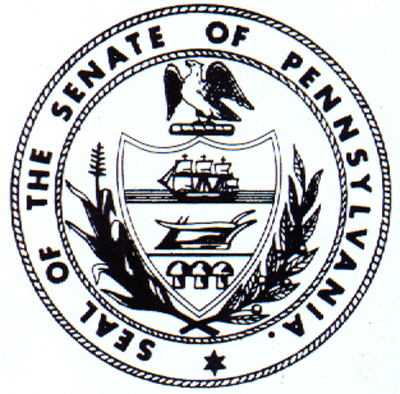|
|
|||||||
NEW STATE BUDGET TARGETS MONEY FOR EDUCATIONAL IMPROVEMENT HARRISBURG, July 4, 2004 – The Pennsylvania Senate approved a nearly $23 billion state budget today that will provide important new sources of funding for school districts, but includes no tax increases, according to state Senator Vincent Fumo (D-Philadelphia). "We were able to do a lot of good in a lot of different areas because of the surplus that we had to work with," said Fumo, the Democratic Chairman of the Appropriations Committee and one of his party’s lead negotiators on the budget agreement. The state ended the 2003-04 fiscal year on June 30 having collected $636 million more in revenue than projected. The new 2004-05 fiscal year budget increases state spending by about four percent over the prior year. The budget was approved four days into the new fiscal year, at the end of a lengthy week of historic legislative action to legalize slot machine gaming and to institute a statewide system to reduce local school district property taxes and Philadelphia wage taxes. Funding for basic education will increase by nearly $500 million under the new budget. In addition to a basic school subsidy hike of $151 million, the state, for the first time, will provide $200 million to school districts for Accountability Grants. Districts will have the flexibility to choose from a menu of eligible initiatives proposed by Governor Ed Rendell when spending the grants – pre-kindergarten, full-day kindergarten, and reducing class size in the early grades, as well as tutoring and remediation programs. "The decision to support these initiative marks a significant day in the history of Pennsylvania’s public education system. We’re giving school districts the help they need to help the students who need it the most," Fumo said. "This is something Governor Rendell wanted badly, fought for hard, and will now deliver to the families of Pennsylvania," Fumo added. Among other education funding items of note are a $22.4 million increase in funding for Approved Private Schools and schools for the deaf and blind, $25 million in additional funding for Charter Schools, a $13 million increase in tutoring grants, and a new $11 million Limited English Proficiency initiative. State allocations to libraries will climb by more than 20 percent over the prior year, to a total of $57.9 million. Higher education institutions will receive about a 3 percent across-the-board increase. There will be a $13 million boost in Pennsylvania Higher Education Assistance Agency grants. The House of Representatives passed the budget bill and the the governor is expected to sign it. A dispute over the governor’s proposal to add money to the Growing Greener environmental program was resolved late in the negotiations. Although there will be no additional support from the General Fund budget for Growing Greener, legislative leaders agreed to a $600 million bond referendum that will be presented to state voters next spring. There will be no increase in landfill tipping fees and several other fees as the governor had originally requested. Other budgetary issues that were settled as legislative and administration negotiators wrapped up final details over the past several days were: State support of mass transit agencies will increase by $8 million above the Governor’s request, due to Fumo’s efforts. Human services programs will receive a cost of living increase of 2 percent over the past fiscal year. No additional funding for those program had been proposed, but they were a strong concern of Senate Democratic caucus members, who had sought 3 percent growth. The state will place $440 million into reserves. The Rainy Day fund will get an influx of $190 million, which is $120 million more than required under the law mandating that a portion of any year-end surplus be deposited there. The other $250 million will go toward a reserve of Intergovernmental Transfer (IGT) funds. IGT is a source of federal money for human service programs. The federal government is gradually phasing out IGTs over an eight-year period, however, and Pennsylvania’s share is being reduced this year by 15 percent. There will be funding for 90 new State Police recruits, worth about $7 million. This is a one-year commitment only and is not part of a three-year commitment for 270 new officers, as had been sought by some parties in the negotiations. The new budget restores an appropriation to the Homeowners Emergency Mortgage Assistance Program in the amount of $5 million. #
| |


